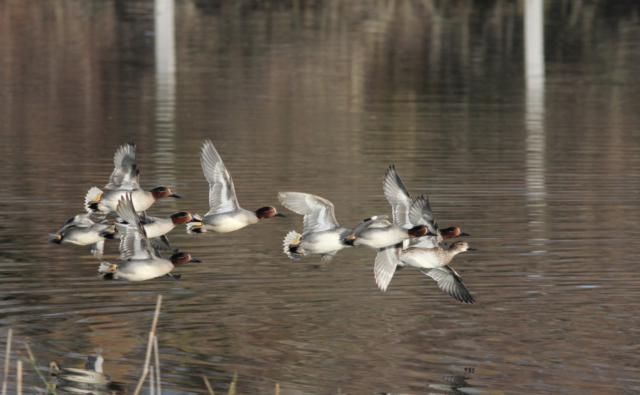 |
Jean-Philippe Lefrançois, Managing Director of Alpina Savoie, answers the Tour du Valat’s questions about agroecology in the Camargue. |
1. Since 2019 Alpina Savoie has been supporting a research project run by the Tour du Valat on agroecology in the Camargue. Why has Alpina Savoie chosen to commit to such a project?
Alpina Savoie is the oldest French pasta flour mill. The company was founded in Chambéry in 1844 in a region with a great pasta-making tradition.
Today, in response to the global climate challenges, we want to contribute to the renewal and sovereignty of our food by producing French products with “real” taste, and which are respectful of the land and those who cultivate it.
Our aim is to offer our customers and professional clients solutions that facilitate and inspire a healthier, plant-based and sustainable diet. We develop pasta and cereal products with high technical, organoleptic, and nutritional qualities, as well as a positive environmental impact.
To grow high quality wheat with respect for the land and the men and women who cultivate it, Alpina has always run its own mill and maintained a close working relationship with its French farming partners based on trust. More than 25 years ago, the company was a pioneer in the development of a line of sustainable French durum wheat satisfying demanding specifications.
In 2012, the company created the first and only line of organic durum wheat grown in France with its partners in the Sud Blé Dur Bio association in order to offer 100% French organic pasta from field to plate.
Many of our organic partner farmers are in the Camargue where there are favourable climate conditions for growing durum wheat and a real agronomic advantage with crop rotation.
We support them in their implementation of new agricultural practices while guaranteeing them a long-term vision of their future with a fair price for their work.
This agroecological project with the Tour du Valat is very meaningful within our corporate mission.
2. Why did you choose to help develop this project in the Camargue?
The objective of this approach is first to measure and demonstrate the impact of organic farming on the fragile ecosystem of the Camargue and on preserving its unique biodiversity.
This study is also aimed at identifying areas in which progress can be made in farming methods that combine agricultural performance and resource conservation. We have thus benefited from the expertise of the Tour du Valat to develop an ambitious project concerning the improvement of agricultural practices. Today, we are proud to note that the work carried out over the past three years has led more and more producers to take an interest in the biodiversity on their farms and, above all, in the benefits that this biodiversity can bring them in their fight against the bio-aggressors that attack their organic durum wheat.
Now we want to scale up this project, so that it will gain momentum and include a luch larger number of producers.
3. In your opinion, what are the obstacles or constraints that are limiting the development of organic farming and agroecology today?
First of all, the difficult economic situation today: with the inflation that we have been experiencing for several months, production costs are soaring, and, as a result, the prices consumers must pay for organic products. All products seem to be affected. The pasta market experienced a 3% decline in organic sales in 2022.
The decline in organic food sales is due to inflation, but also to locally sourced and/or responsible goods. With the emergence of a multitude of labels that focus on one or two very clear elements, such as Zero Pesticide Residue or Fair Trade, consumers no longer understand the difference provided by organic products. For example, many organic products come from a distant location. There is also no guarantee that they are pesticide free, and the packaging is often plastic.
At Alpina Savoie, we have chosen to guarantee 100% organic and fair-trade French products, with no use of pesticides, even those permitted in organic farming; therefore, our products have no pesticide residues. Moreover, we package them in cardboard boxes from forests managed sustainably and locally.
Today, 63% of French people are concerned about global warming, whose concrete impacts they can see. They expect their brands to act. Agroecology is indeed a major issue in the fight against global warming. But we need to raise awareness and help consumers better understand why our approach is legitimate and meaningful.
4. What role is Alpina Savoie playing to push forward the agroecological transition?
Alpina Savoie is committed to optimising its impact throughout its value chain, from farm to fork, and whether it is organic or conventional production of durum wheat, we work hand in hand with all the players in the agricultural sector:
- Cooperatives and traders who assist producers on a daily basis in the production of high-quality durum wheat,
- Research institutes such as the Tour du Valat, but also INRAE and Arvalis, with whom we work on research projects aimed at perfecting the cultivation of durum wheat. Here again, we are working on how to combat global warming, but also on optimising the intrinsic quality of our raw material, durum wheat,
- Other industrial partners in the agri-food sector, with whom we share our commitments and combine our efforts to help the farmers growing our products face their own challenges.
Furthermore, our contractual and pricing tools are designed to pay producers a fair price to reward their efforts in adhering to an ambitious agroecological project.




